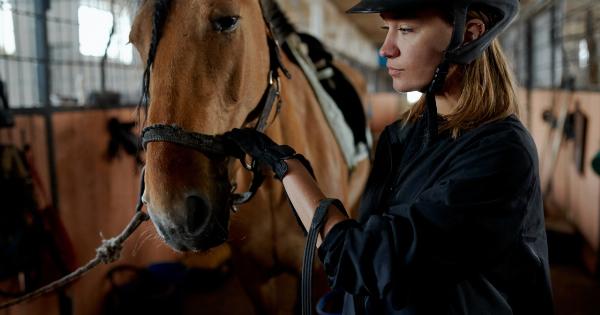Animal abuse is a deeply disturbing and widespread issue that affects countless innocent creatures around the world.
While laws and regulations have been put in place to prevent and punish such acts, it is crucial to examine the role of individual character when it comes to preventing and addressing animal abuse. In this article, we will explore how one’s character influences their treatment of animals, the impact of character in animal abuse cases, and the importance of instilling empathy and compassion in society.
The Psychology Behind Animal Abuse
Understanding the psychological aspects behind animal abuse is essential in deciphering the role of character in such cases. Research has shown a strong correlation between animal abuse and other violent behaviors.
Individuals who exhibit a lack of empathy, have a propensity for aggression, or derive pleasure from inflicting harm on vulnerable beings are more likely to be involved in acts of animal cruelty.
The development of character is a complex process influenced by a combination of genetic, environmental, and social factors.
Childhood experiences, such as witnessing or being subjected to violence, may contribute to the formation of a callous character that lacks compassion not only towards animals but also towards fellow humans.
Character and Animal Abuse
One’s character plays a significant role in determining their treatment of animals. Individuals with a strong moral character and a deep sense of empathy are more likely to exhibit kindness, compassion, and respect towards animals.
They understand the inherent value of all living creatures and consider them worthy of protection.
On the other hand, individuals with a weak or flawed character may engage in animal abuse due to a variety of reasons. Some may do it for financial gain, such as in cases of illegal puppy mills or wildlife trafficking.
Others may engage in animal fighting ventures driven by a sense of power and dominance. In some instances, individuals may simply lack the ability to comprehend and connect with the suffering of animals, leading to negligent or abusive treatment.
The Role of Empathy and Compassion
Empathy and compassion are crucial components of an individual’s character that help prevent animal abuse.
Empathy involves the ability to understand and share the feelings of another, while compassion encompasses the desire to alleviate the suffering of others. These qualities are not inherent in everyone but can be nurtured and developed through education, awareness, and exposure to positive role models.
Teaching empathy and compassion from an early age is vital in fostering a society that values the well-being of animals and treats them with kindness.
It is essential to educate children about the sentience and emotions of animals and encourage them to develop a sense of responsibility towards their welfare. By instilling these values, we can shape a future generation with a strong character that respects and protects all living beings.
Prevention and Intervention through Character Building
Investing in character-building programs is an effective way to prevent animal abuse and intervene in cases where it has already occurred. Such programs can target individuals of all ages, with a specific focus on children and adolescents.
By promoting empathy, compassion, and responsible behavior towards animals, these initiatives aim to create a more compassionate society.
Character-building programs can include educational campaigns, awareness programs in schools, and workshops that emphasize animal welfare and the importance of ethical treatment.
Additionally, incorporating animal-related activities into curricula can help children develop empathy by fostering a connection with animals and understanding their needs.
The Legal Perspective
The legal system plays a critical role in holding individuals accountable for acts of animal abuse and cruelty. However, it is essential to recognize that the law alone cannot solve the problem entirely.
While stricter penalties and improved enforcement of animal protection laws are necessary, changing one’s character requires more than just legal consequences. Prevention and intervention focused on character development can complement legal measures and create a lasting impact.
Mitigating Factors in Animal Abuse Cases
When dealing with animal abuse cases, it is important to consider various factors that may contribute to such behavior.
Mental health issues, addiction, or a history of trauma can influence an individual’s character and contribute to their involvement in animal abuse. Recognizing these factors and providing appropriate resources, such as therapy or rehabilitation programs, can address the root causes and help prevent future instances of animal cruelty.
Conclusion
Addressing and preventing animal abuse requires an understanding of the role of character in such cases.
By promoting empathy, compassion, and responsible behavior towards animals, we can foster a society that values their well-being and treats them with kindness. Character-building initiatives, coupled with legal measures, can work together to create a future where animal abuse is not only legally punishable but also morally unacceptable.




























